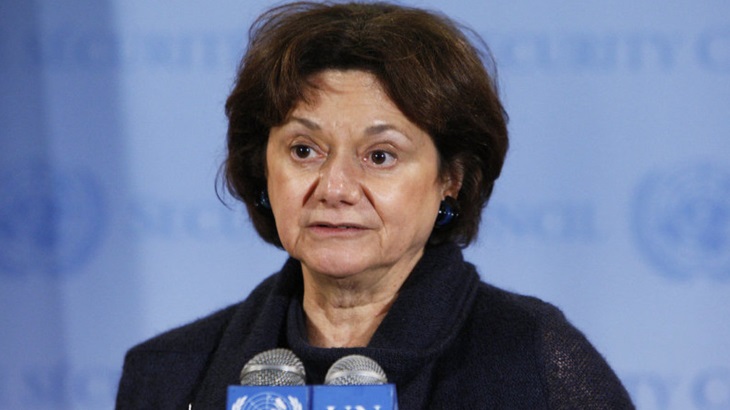Former US president Donald Trump withdrew the USA from the JCPoA in May 2018 and re-imposed economic sanctions on Iran, which responded by exceeding the limits imposed by the agreement on uranium enrichment. Iran has refined uranium up to a purity of about 60%, while the JCPoA’s limit is 3.67%.
Breakthrough needed
The 15-member UN Security Council discussed yesterday the secretary-general's biannual report on the implementation of a 2015 resolution that enshrines the JCPoA.
According to the text summary of the Security Council meeting, delegates "rallied the parties to make the difficult political decisions needed to achieve a breakthrough" at the talks in Vienna aimed at restoring the JCPoA.
Rosemary DiCarlo, under-secretary-general for Political and Peacekeeping Affairs, said implementation of the JCPoA - the outcome of 12 years of diplomatic and technical negotiations - has “improved considerably” since the Council’s last meeting on the topic, in December 2020, following the withdrawal by the USA of letters previously sent to the Council by the Trump administration in August and September 2020.
She urged the Biden administration to extend the waivers related to oil trade with Iran and to facilitate non-proliferation activities at the Bushehr nuclear power plant, the Fordow Facility and the Arak reactor, calling these moves “needed steps” to advance implementation of the JCPoA and the UN Security Council Resolution 2231 of 2015 that had endorsed the agreement.
Highlighting steps taken by Iran to reduce its nuclear-related commitments, following the USA's exit from the accord in 2018, she said Iran has enriched uranium up to 60%, giving it a total enriched uranium stockpile of 3241kg. Iran also suspended the Additional Protocol to its Comprehensive Safeguards Agreement with the International Atomic Energy Agency (IAEA) and has not indicated whether it will maintain the 'temporary technical understanding' forged with the IAEA.
"In this defining moment, it is critical for all parties to bring the Plan of Action back on the right track as soon as possible," she said, "and thereby offer proof that even the most contentious issues can be addressed through dialogue, understanding and reciprocity."
Still waiting
On 24 May, IAEA Director General Rafael Mariano Grossi said the 'temporary technical understanding' he had agreed with Tehran in February had "left the door ajar" and that the subsequent one-month extension meant it "stayed ajar, for now". After the extension's deadline had passed, on 24 June, the IAEA reportedly demanded an immediate reply from Iran on whether it would extend the monitoring agreement.
Asked about this matter, Iranian government spokesman Ali Rabiyee told reporters on 29 June: "Previously, the agreement between Iran and the IAEA was renewed due to the positive atmosphere and promising prospects for reaching an agreement."
Iran's relations with the IAEA will be based "solely on safeguards" if the 'temporary technical understanding' is not renewed, and Iran "will not make any further commitments", he added.
Tehran is still waiting, Rabiyee said, for a decision by other signatories to the JCPoA on the next round of the Vienna talks.







_15863.jpg)







